Imagination: For Godâs Glory and Othersâ Good, Part 1
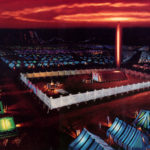 So begins the series in which Iâll compare creativity to sex, and Lord willing, get away with it.
So begins the series in which Iâll compare creativity to sex, and Lord willing, get away with it.
I also hope to draw what Iâm sure is a connection between recent discussions: an online column by Russell Moore called Can Romance Novels Hurt Your Heart?, our own Fred Warrenâs satirical take on overreactions to bad fiction, and (why not?) Harold Camping.
First, hereâs how compare romance, physical results included, and human creativity.
- Romance and imagination are gifts from God, good gifts, for His glory and our good.
- Even after the Rebellion (Genesis 3) that resulted in humans abusing good Things (cf. Mark 7), romanceâs goodness is proved by passages such as Genesis 2, Ephesians 5 and (of course) all of the Song of Solomon. Imagination and creativity are shown to be good in Exodus 31-38 (the construction of the Tabernacle), and 1 Corinthians 10:31 and Colossians 3 add that in anything a Christian does, he must glorify God.
However, both romance/sex and creativity can be used, or abused, in different ways:
- Abused, for oneâs own self-pleasure.
- Rejected, by pretending they do not exist or are themselves evil Things.
- Used and enjoyed, according to Godâs Word, for His glory and our good.
1. Imagination abused
 Most recently, lying, doomsaying Bible-abuser Harold Camping also abused his imagination, treating his own myth-making as reality and rejecting God in favor of his own self-pleasure.
Most recently, lying, doomsaying Bible-abuser Harold Camping also abused his imagination, treating his own myth-making as reality and rejecting God in favor of his own self-pleasure.
For a guy of 90, Camping has stayed active, even before the whole false-âRaptureâ thing last Saturday. Yes, Iâm picturing him as Christian-spinoff cult-domâs very own Hugh Hefner. But instead of keeping to an unkempt mansion with women, he stays in a studio with a Bible and âreadsâ that book the way no one reads plain writing: himself the enlightened âinterpreter,â ignoring the plain Gospel in favor of supposed secret codes âreadâ by his own imagination.
 Based on Mark 4: 33-34, which tells how Jesus spoke to them, a particular people group at a particular time, only in parables, Camping claims the Bible is all one great big parable whose allegories and symbols only the enlightened (himself) can determine. Also, because these are the last days, the Bible now gets to be really revealed, because the end of Daniel 12 mentions âthe wordsâ being âshut up and sealedâ until the end. (Source: Alpha and Omega Ministries.)
Based on Mark 4: 33-34, which tells how Jesus spoke to them, a particular people group at a particular time, only in parables, Camping claims the Bible is all one great big parable whose allegories and symbols only the enlightened (himself) can determine. Also, because these are the last days, the Bible now gets to be really revealed, because the end of Daniel 12 mentions âthe wordsâ being âshut up and sealedâ until the end. (Source: Alpha and Omega Ministries.)
Thatâs abuse of Scripture, and abuse of imagination. And it got worse on Monday, May 23.
Asked if he had any advice to offer those who had given away their material wealth in the belief the world was about to end, Mr Camping said they would cope.
âWe just had a great recession. Thereâs lots of people who lost their jobs, lots of people who lost their houses⊠and somehow they all survived,â he said.
âWeâre not in the business of giving any financial advice,â he added.
âWeâre in the business of telling people maybe there is someone you can talk to, and thatâs God.â
In other words: My own âspiritualâ rights to be Big Leader matter more than honoring God and His Word, loving people and repenting for my wrongs. My imagination is for my own self-pleasure. And I donât give a crap who gets hurt or if Godâs Name is slandered.
Yet it would be easy to critique Camping without also considering: might we slip into being reckless with Godâs Word, even while sincerely believing we seek to learn its Authorâs intent?
And even if we donât really believe our imagined scenarios are truth or go about spending millions to promote them as truth, do we let them trump Godâs truth? Might we, even with the best of intentions, sometimes abuse our imaginations for our own pleasure?
Thatâs something to ponder. And whatâs scary is that Camping â just like us sometimes â seems to have begun with very sincere intentions. He wanted to find the Bibleâs deeper meanings. Apparently he wanted to apply his imagination in search of truth. Shouldnât all Christians also want the same? Yet Camping has refused to repent and do that in Godâs way.
A final bonus thought: Iâve begun to wonder if reading some fantastic, God-honoring novels may have actually relieved Campingâs abuses of his own imagination. Like a sex deviant, did this false teacher  take out his frustrated imagination on the Bible, his deceived followers (who also want the wrong kind of escapism), and real Christians who are now stuck saying Heâs Not One of Us? Could Camping have been helped by having a legitimate âoutletâ for his speculations, similar to how marriage is the right outworking for God-given sexual desires?
Next week Iâll pick up with the second extreme view, often held as an overcorrection to abuse of imagination: Christians who deny their own imaginations, or the goodness of this gift.
Addendum: correcting Camping with Christian imagination?
Friday, May 27 â Readers below point out how I should have been clearer about how simply throwing books at Camping to try to point him toward better, more-God-glorifying uses of imagination, will certainly not correct his errors. That alone wouldn’t help now, and it wouldn’t have helped in the past either.
Author (and SF contributor) Kaci Hill, for example, wrote:
I think I could give him any novel I wanted and it wouldnât by default prevent him from thinking what he wanted or change his mind. Books may influence theology, but they canât create them.
Amen times ten. But â still speculating here â if one could time-travel back decades ago when Camping was still acting more orthodox, to change history, and had some assurance that both time and people could be rewritten, I do believe that exposure to Christ-influenced imagination done right could have helped. But absolutely, that would be secondary to the main need for his sinful impulses to be changed from the inside-out, and ultimately only the Holy Spirit can do that.
Campingâs primary problem is (I believe this is proven even more true now) spiritual arrogance, sourced by an unregenerate heart. He doesnât act saved. If he dies in this condition, heâll have proved that he never was saved. Christians donât act like this and make a practice of sinning, without repenting. (Source: 1 John.)
So yes, absolutely, only giving him fun novels â the best stuff Christendom has come up with, even by the Patron Saints of Christian Visionary Fiction, Lewis and Tolkien â would not have helped at all. I hope I never gave the impression I thought otherwise.
In fact, for all we know Camping knew about Christian imagination done right and overtly rejected it. Similarly, he rejected the truth in the church where he used to be, and which did its job by disciplining him (yes!) when he started going off the rails, after which he (of course) decided the Holy Spirit had left the churches, and salvation was no longer available inside even orthodox-believing Gospel-driven churches.
Insisting someone hurl himself into the practice of God-honoring imagination, without having the desire to honor God in the first place and use His gifts rightly â which can only come from repentance and acceptance of the Gospel â wouldnât work at all.
Not only that, itâs legalism: enacting another Do-This, without a Why.
Maybe that was an error above: I myself assumed the Gospel of repentance and faith in Christ! (Re-note to self: never, ever, assume that.)
Without a Gospel-wrought change, not even the Patron Saints of Christian Visionary Fiction would have any effect on a rebel human who’s determined to abuse his own God-given imagination. Even now readers claiming to be âfamiliarâ with them will claim they said or meant things they never did (more recently, Rob Bell, totally missing the point of The Great Divorce, claimed it supports his beliefs in non-permanent Hell). So thereâs no chance that only great fiction, without a heart-level change that only the Holy Spirit could use to regenerate his spiritually dead heart, would have helped Camping.




































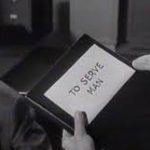



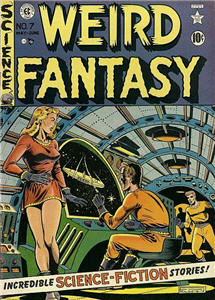

 This reminded me of something Tyers said in preparation for
This reminded me of something Tyers said in preparation for 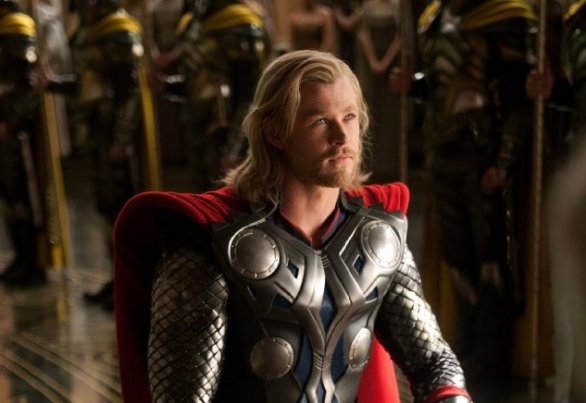
 This morning, before my wife left for work, I caught sight of two books in the carâs backseat: the Bible, and Harry Potter and the Sorcererâs Stone, which she finished re-reading.
This morning, before my wife left for work, I caught sight of two books in the carâs backseat: the Bible, and Harry Potter and the Sorcererâs Stone, which she finished re-reading. Before Thor is banished to Earth for his arrogance (anyone familiar with the movieâs trailers or summaries knows this already), he is still shown as a character audiences cheer for, even while seeing his sins. The filmâs writers, producers and actors captured this balance very well â Thor is neither the clichĂ©d Bad Boy, nor the stereotypical Angsty Hero who must See the Good He Truly Possesses Inside and simply get in touch with that to save the world.
Before Thor is banished to Earth for his arrogance (anyone familiar with the movieâs trailers or summaries knows this already), he is still shown as a character audiences cheer for, even while seeing his sins. The filmâs writers, producers and actors captured this balance very well â Thor is neither the clichĂ©d Bad Boy, nor the stereotypical Angsty Hero who must See the Good He Truly Possesses Inside and simply get in touch with that to save the world.
 Itâs like heaven, people said, even hardened geeks who may like to act like theyâve seen it all, in reaction to the filmâs portrayal of the distant realm of Asgard. It hovers in the clouds ⊠itâs another planet ⊠itâs another dimension, just off the edge of outer space ⊠it was somewhat difficult to tell exactly. But it looked amazing: futuristic, but traditional, a vast garden and city with towering spires shining in the light from a sun you donât quite see.
Itâs like heaven, people said, even hardened geeks who may like to act like theyâve seen it all, in reaction to the filmâs portrayal of the distant realm of Asgard. It hovers in the clouds ⊠itâs another planet ⊠itâs another dimension, just off the edge of outer space ⊠it was somewhat difficult to tell exactly. But it looked amazing: futuristic, but traditional, a vast garden and city with towering spires shining in the light from a sun you donât quite see.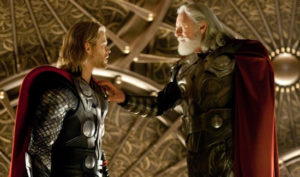 In this story, of course, Thor sacrifices himself to save those he loves, many of whom have helped him, and who are in his words innocent humans. As a Christian I do love to see this, yet with the subtle reminder: Christ wasnât only killed by villains, but by God Himself, and crushed (Isaiah 53) in place of His enemies: human rebels guilty of rejecting Him.
In this story, of course, Thor sacrifices himself to save those he loves, many of whom have helped him, and who are in his words innocent humans. As a Christian I do love to see this, yet with the subtle reminder: Christ wasnât only killed by villains, but by God Himself, and crushed (Isaiah 53) in place of His enemies: human rebels guilty of rejecting Him.

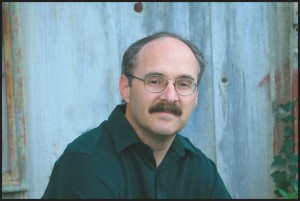

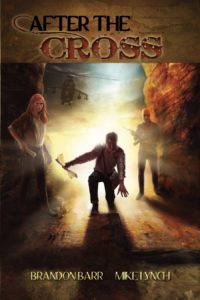
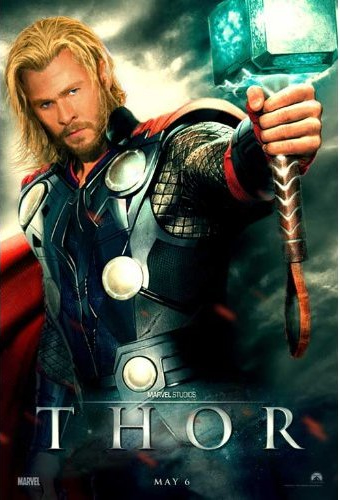
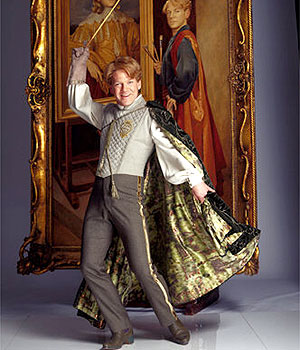
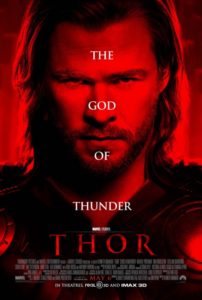 I know little about the original Marvel comics hero, except that originally the Norse god Thor manifested in a human âhostâ character. The film does away with that idea (though it does apparently reference that characterâs name when an alias is necessary for Thor). And it very clearly shows and even states that King Odin, Thor and Loki, while powerful and immortal, are not gods. They are vulnerable to injury, arrogance and evil, and were only perceived as gods by the Norse long ago because of their advanced culture and science-based âmagic.â
I know little about the original Marvel comics hero, except that originally the Norse god Thor manifested in a human âhostâ character. The film does away with that idea (though it does apparently reference that characterâs name when an alias is necessary for Thor). And it very clearly shows and even states that King Odin, Thor and Loki, while powerful and immortal, are not gods. They are vulnerable to injury, arrogance and evil, and were only perceived as gods by the Norse long ago because of their advanced culture and science-based âmagic.â
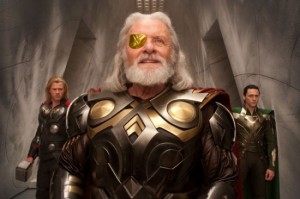 This next contains a slight spoiler: When Loki, Thorâs scheming, prankster brother (the Norse god of mirth), ends up on the throne of Asgard, four noble warriors approach him, in search of King Odin. They want Loki to rescind Odinâs banishment of the prideful Thor to Earth. Loki informs them that Odin is, well, legitimately absent, leaving the throne to Loki.
This next contains a slight spoiler: When Loki, Thorâs scheming, prankster brother (the Norse god of mirth), ends up on the throne of Asgard, four noble warriors approach him, in search of King Odin. They want Loki to rescind Odinâs banishment of the prideful Thor to Earth. Loki informs them that Odin is, well, legitimately absent, leaving the throne to Loki.


